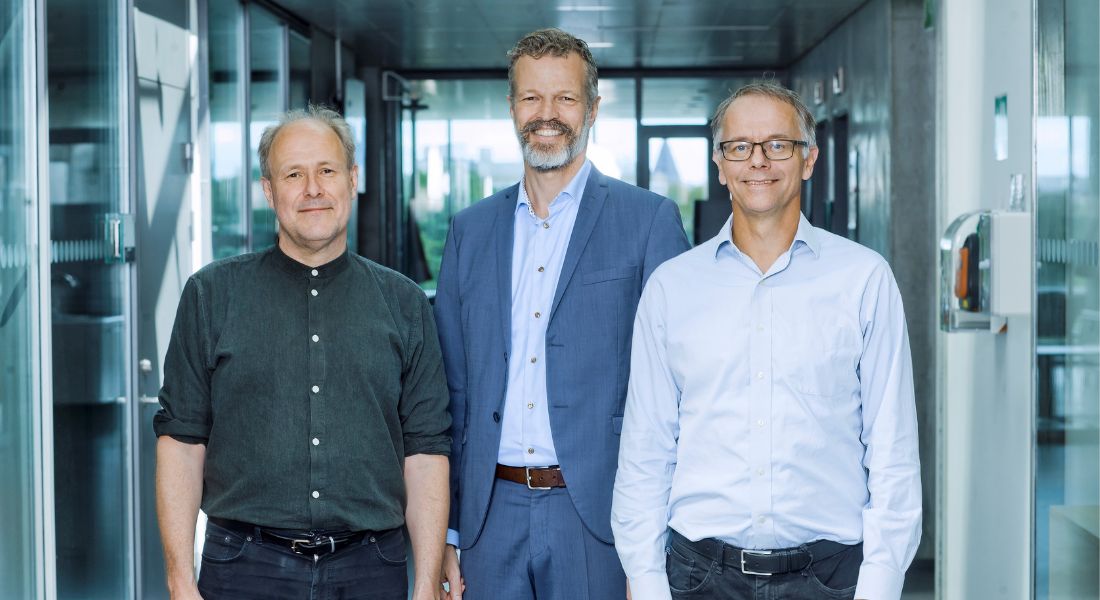New gene technology can reveal how well medicine works. Behind it, you will find the new company BioPhenyx
Researchers from the University of Copenhagen have started a new company which, on the basis of gene technology, shall make the development of medicine faster and more precise. According to the researchers behind the company, this may lead to better treatment of diseases.

It is more the rule than the exception that researchers spend more than ten years developing and testing new medicines. Besides, the many hours spent in laboratories do not always lead to medicines that work as intended. The new company BioPhenyx from the Biotech Research & Innovation Centre (BRIC) at the University of Copenhagen may be able to change all that.
Using the gene technology CRISPR-Select which is based on CRISPR technology, the company will test drugs that are being developed. By means of this technology, they will investigate whether the intended effect of the medicine plays a role in the development of the disease, thus making them able to reveal whether the medicine will work.
‘Our technology can remove some of the guesswork that has previously been part of drug development. We can tell exactly what the new drug will hit in our cells, so we have made a discovery which means that patients will receive better and potentially cheaper medicine’, says Associate Professor Claus Storgaard Sørensen, one of the researchers and founders of BioPhenyx.
The technology they have developed means that the researchers can make tiny changes in the cells which are targeted by a new type of medicine. Then they can compare those cells with normal cells. When the researchers ‘feed’ the new medicine to the cells, they can see which cells perform best and whether the medicine works as intended.
‘We have further developed the CRISPR technology which means that we can obtain results faster than before and, maybe even more importantly, the results will now enjoy a very high reliability’, says Associate Professor Morten Frödin, the other researcher and founder of the new company.
The technology allows them to help companies that develop drugs so that new types of medicines can be developed faster, with a greater probability of hitting the precise target and reducing the risk of side effects. The technology may be used in the development of all types of medicine – from painkillers such as Panodil to new treatments against cancer.
May reduce the number of patients
Exactly how a newly developed substance manages to hit the cell which the developers want to target is one of the big challenges when developing new medicines today. It is the hope of the founders of BioPhenyx that they can change that. These are the words of Ole Bitsch-Jensen who – as Master of Science, Chemical Engineering – has worked in and together with the pharmaceutical industry for many years, and who helped start the company.
‘With our technology, we are able to document a hypothesis from the drug developers precisely and accurately very early in the process. We have never before seen anyone who can do this with the same precision and speed’, explains Ole Bitsch-Jensen, adding that it will also mean that the medicine works better and actually ends up in the patients.
A disease such as cancer varies from patient to patient. CRISPR-Select can test whether a particular medicine will work for a particular patient with for example cancer
‘Only a few of the drugs that are used in clinical trials actually end up on the market because the hypotheses cannot be validated fast enough. Here, our technology may help to target clinical trials a little better and, in the end, this will ensure the patients a greater degree of effectiveness, better recovery data and, in terms of society, fewer people will be ill. We want to help as many people as possible in the most efficient and logical way’, he says.
Another advantage of the new genetic technology is that it can actually help to produce medicine that is certain to work for a specific human disease. Because our genes all look different. This means that some medicine will work for some people, but not for others.
‘A disease such as cancer varies from patient to patient. CRISPR-Select can test whether a particular medicine will work for a particular patient with, for example, cancer. In this way, CRISPR-Select can help select the patients who will benefit the most from the treatment’, explains Morten Frödin.
A good entrepreneurial environment has been crucial
In mid-June, BioPhenyx took over the right to use the technology from the University of Copenhagen, and the collaboration with companies that produce medicine has already begun.
For the two researchers behind the new technology, a collaboration partner and the entrepreneurial environment at the University of Copenhagen have been decisive for starting BioPhenyx.
‘The very fact that there is an entrepreneurial culture, and that we have had a dialogue with other entrepreneurs from the University of Copenhagen has been very stimulating. They unanimously told us that we needed a business partner early in the process’, says Claus Storgaard Sørensen, elaborating:
‘It is Ole who has seen the market perspectives and made it possible to convert our technology into a business. As academic researchers, we have virtually no business skills. We think more in terms of research hypotheses and concrete evidence. So a good piece of advice is early in the process to involve experts who have experience and insights from the corporate world, and who have a network and understanding of customers and the market’.
Contact
Associate Professor Morten Frödin
+ 45 71 47 69 71
morten.frodin@bric.ku.dk
Associate Professor Claus Storgaard Sørensen
+ 45 35 32 56 78
claus.storgaard@bric.ku.dk
Master of Science, Chemical Engineering Ole Bitsch-Jensen
+ 45 49 11 33 68
ole.jensen@biophenyx.com
Journalist and Press Officer Sascha Kael Rasmussen
+45 93 56 51 68
sascha.kael.rasmussen@sund.ku.dk
